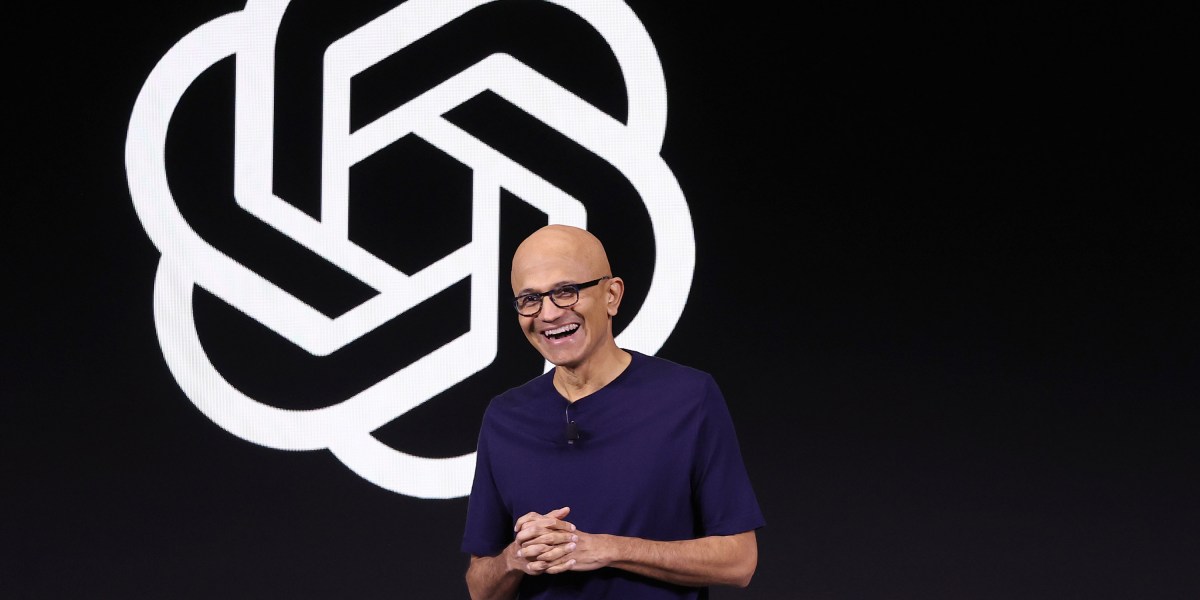Make no mistake—AI is owned by Big Tech

The recent OpenAI saga, in which Microsoft exerted its quiet but firm dominance over the “capped profit” entity, provides a powerful demonstration of what we’ve been analyzing for the last half-decade. To wit: those with the money make the rules. And right now, they’re engaged in a race to the bottom, releasing systems before they’re ready in an attempt to retain their dominant position.
Concentrated power isn’t just a problem for markets. Relying on a few unaccountable corporate actors for core infrastructure is a problem for democracy, culture, and individual and collective agency. Without significant intervention, the AI market will only end up rewarding and entrenching the very same companies that reaped the profits of the invasive surveillance business model that has powered the commercial internet, often at the expense of the public.
The Cambridge Analytica scandal was just one among many that exposed this seedy reality. Such concentration also creates single points of failure, which raises real security threats. And Securities and Exchange Commission chair Gary Gensler has warned that having a small number of AI models and actors at the foundation of the AI ecosystem poses systemic risks to the financial order, in which the effects of a single failure could be distributed much more widely.
The assertion that AI is contingent on—and exacerbates—concentration of power in the tech industry has often been met with pushback. Investors who have moved quickly from Web3 to the metaverse to AI are keen to realize returns in an ecosystem where a frenzied press cycle drives valuations toward profitable IPOs and acquisitions, even if the promises of the technology in question aren’t ever realized.
But the attempted ouster—and subsequent reintegration—of OpenAI cofounders Sam Altman and Greg Brockman doesn’t just bring the power and influence of Microsoft into sharp focus; it also proves our case that these commercial arrangements give Big Tech profound control over the trajectory of AI. The story is fairly simple: after apparently being blindsided by the board’s decision, Microsoft moved to protect its investment and its road map to profit. The company quickly exerted its weight, rallying behind Altman and promising to “acquihire” those who wanted to defect.
Microsoft now has a seat on OpenAI’s board, albeit a nonvoting one. But the true leverage that Big Tech holds in the AI landscape is the combination of its computing power, data, and vast market reach. In order to pursue its bigger-is-better approach to AI development, OpenAI made a deal. It exclusively licenses its GPT-4 system and all other OpenAI models to Microsoft in exchange for access to Microsoft’s computing infrastructure.
For companies hoping to build base models, there is little alternative to working with either Microsoft, Google, or Amazon. And those at the center of AI are well aware of this, as illustrated by Sam Altman’s furtive search for Saudi and Emirati sovereign investment in a hardware venture he hoped would rival Nvidia. That company holds a near monopoly on state-of-the-art chips for AI training and is another key choke point along the AI supply chain. US regulators have since unwound an initial investment by Saudi Arabia into an Altman-backed company, RainAI, reinforcing the difficulty OpenAI faces in navigating the even more concentrated chipmaking market.




